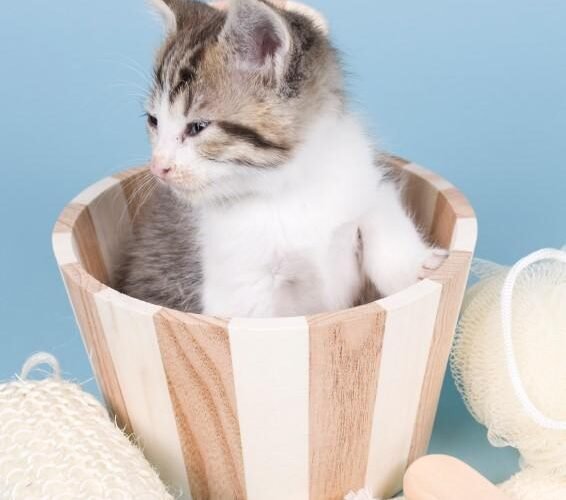If you’ve got a cat you’ll probably know that most felines are pretty much allergic to water, as in they hate baths and everything to do with them. A cat’s curiosity will take it many places and if your pet gets excessively dirty you might wonder if whether or not you should help it to get clean and how to go about it?
In this article we’re going to help by resolving your doubts so that you know how to clean a cat without bathing.
Self-Cleaning Cats
Cats are very clean animals which spend much of the day licking every inch of their coat to get rid of dirt and tangles. It’s no wonder that they occasionally suffer from the well renowned hairballs.
These animals can spend more than 4 hours a day cleaning and preening themselves, to such an extent that even stray cats can look neat and tidy. Its tongue is rough and rugged which allows it to get rid of accumulated dirt in the areas of its fur which are most difficult to get to.
Other than fur, cats need your help because they should also clean their eyes, ears and mouth; delicate areas which are difficult for them to access themselves.

When They’re Really Dirty
If your cat has come home looking particularly dirty, you can think about washing it yourself. Sometimes it’s better to act proactively before your pet swallows dirt which can lead to infection. In these instances, there are various tools that can help you keep a clean cat:
- Firstly, there is dry shampoo which you can find in any shop that sells pet products. These are especially suitable when the animal is particularly resistant to water. It’s foamy in texture, but all you need is a comb to remove the product. They’re a very sensible choice for fidgety cats as they might not even be able to tell they are being cleaned.
- If you don’t have the time to go and buy a specific product, you can clean it a little bit with baby wipes. Do it slowly and gently to mimic the cat’s own licking method. By doing so, it becomes a social interaction which will make your cat trust you and make further cleaning easier.
Remember that by regularly brushing your cat you can stop it swallowing hairballs or dirt and prevent the appearance of parasites. Find a brush that it likes, so that you can spend time with it and make it feel comfortable when it’s by your side.

Other Body Parts
As discussed above, there are three areas which the cat finds difficult to access and these can be even trickier than cleaning fur:
Cleaning the ears of a cat is not an easy task, since it’s an appendage with very delicate components and can be easily damaged. There are specific sprays for maintaining clean ears, although you can also perform a more superficial clean using gauze. Consult your vet to find out the best way to do it.
Eyes should also be taken care of, and you’ll sometimes need to clear them of rheum. This can be done with a gauze or damp cloth. Don’t use the wipes here as it can agitate their eyes.
Finally, the mouth can be a concern for owners wanting to keep a healthy cat. Plaque build up is inevitable, which is why you should carry out a regular cleaning using specific toothpaste and toothbrushes for cats. Giving it chew toys and dry feed will also help to keep healthy teeth and gums.

Source: animalwised.com



